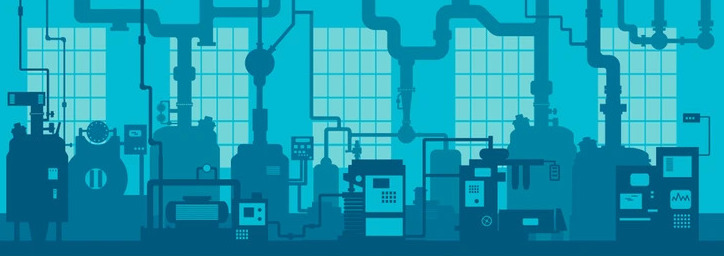Factory Automation
Factory automation has emerged as a game-changer in the manufacturing industry, enabling organizations to achieve unprecedented levels of efficiency, productivity, and competitiveness. By leveraging cutting-edge technologies and advanced robotics, factory automation revolutionizes traditional manufacturing processes, transforming the way products are produced, assembled, and delivered to market. Let's explore the world of factory automation and its profound impact on modern manufacturing operations.

Factory automation refers to the use of advanced technologies, robotics, and control systems to automate and optimize manufacturing processes, tasks, and workflows. From assembly line robotics to computerized control systems, factory automation encompasses a wide range of solutions designed to streamline operations, reduce costs, and improve quality and consistency in production.
Understanding Factory Automation:
Factory automation refers to the use of advanced technologies, robotics, and control systems to automate and optimize manufacturing processes, tasks, and workflows. From assembly line robotics to computerized control systems, factory automation encompasses a wide range of solutions designed to streamline operations, reduce costs, and improve quality and consistency in production.
Key Components of Factory Automation
Industrial Robots: Industrial robots are the cornerstone of factory automation, performing a wide range of tasks, including material handling, assembly, welding, and painting, with precision and efficiency.
Programmable Logic Controllers (PLCs): PLCs serve as the brain of factory automation systems, controlling and coordinating machinery, equipment, and processes through logic-based programming.
Sensors and Vision Systems: Sensors and vision systems provide real-time data on production metrics, quality control, and equipment status, enabling proactive monitoring, analysis, and optimization of manufacturing operations.
Automated Guided Vehicles (AGVs): AGVs transport materials, components, and finished goods within the factory floor autonomously, optimizing material flow and logistics processes.
Computer Numerical Control (CNC) Systems: CNC systems automate machining processes such as milling, turning, and drilling, enabling precise and consistent fabrication of complex parts and components.
Benefits of Factory Automation:
Increased Efficiency and Productivity: Factory automation reduces cycle times, minimizes downtime, and optimizes resource utilization, resulting in higher throughput and productivity.
Improved Quality and Consistency: Automation ensures consistency and accuracy in production processes, reducing errors, defects, and variability in product quality.
Cost Reduction: By streamlining operations and minimizing waste, factory automation helps organizations reduce labor costs, material waste, and operational expenses, improving overall profitability.
Enhanced Safety: Automation mitigates safety risks associated with manual labor and hazardous tasks, creating safer working environments for employees and reducing the risk of workplace accidents and injuries.
Flexibility and Scalability: Factory automation systems can be easily reconfigured and adapted to changing production requirements, allowing organizations to respond quickly to market demands and scale operations as needed.

